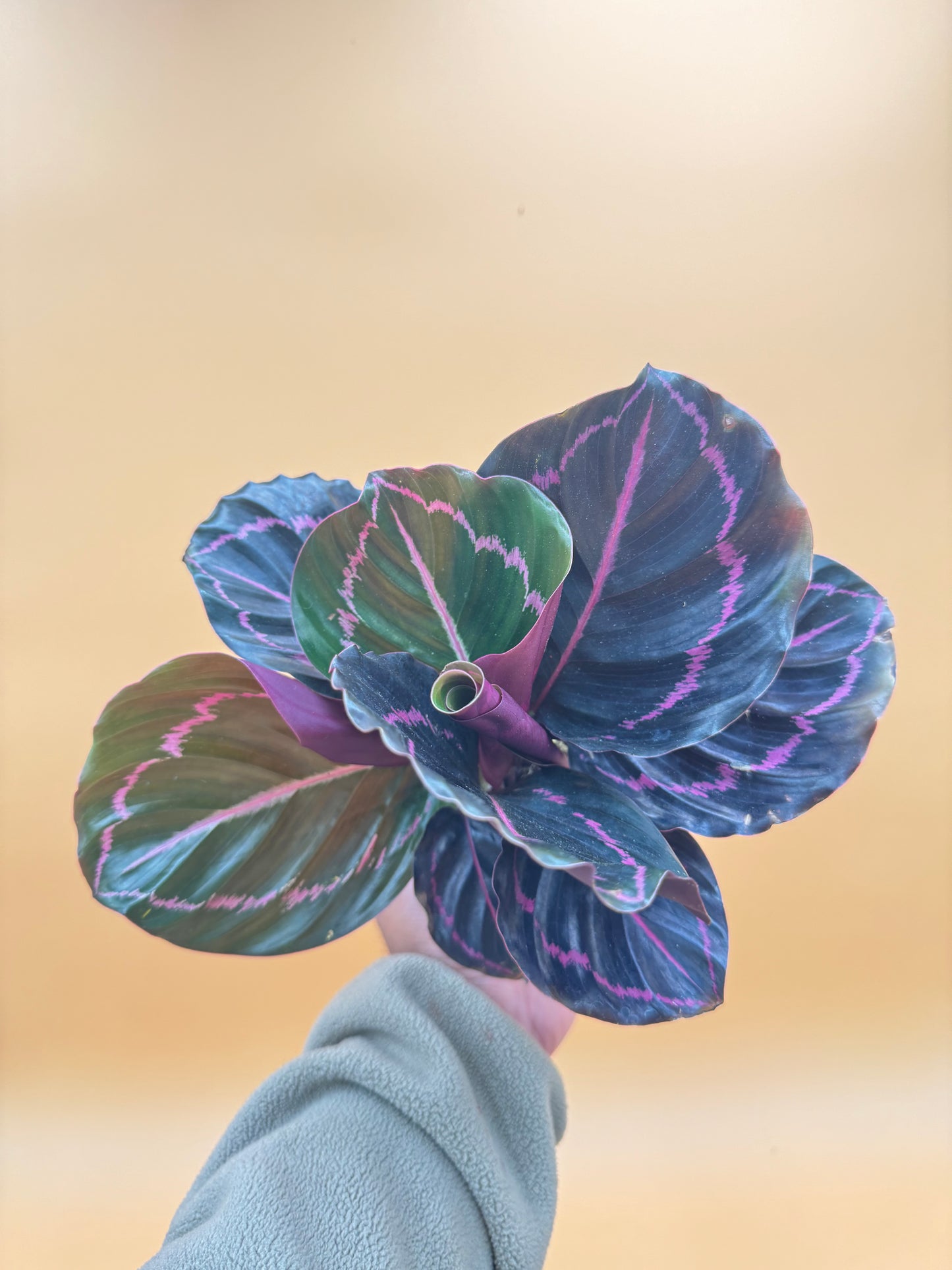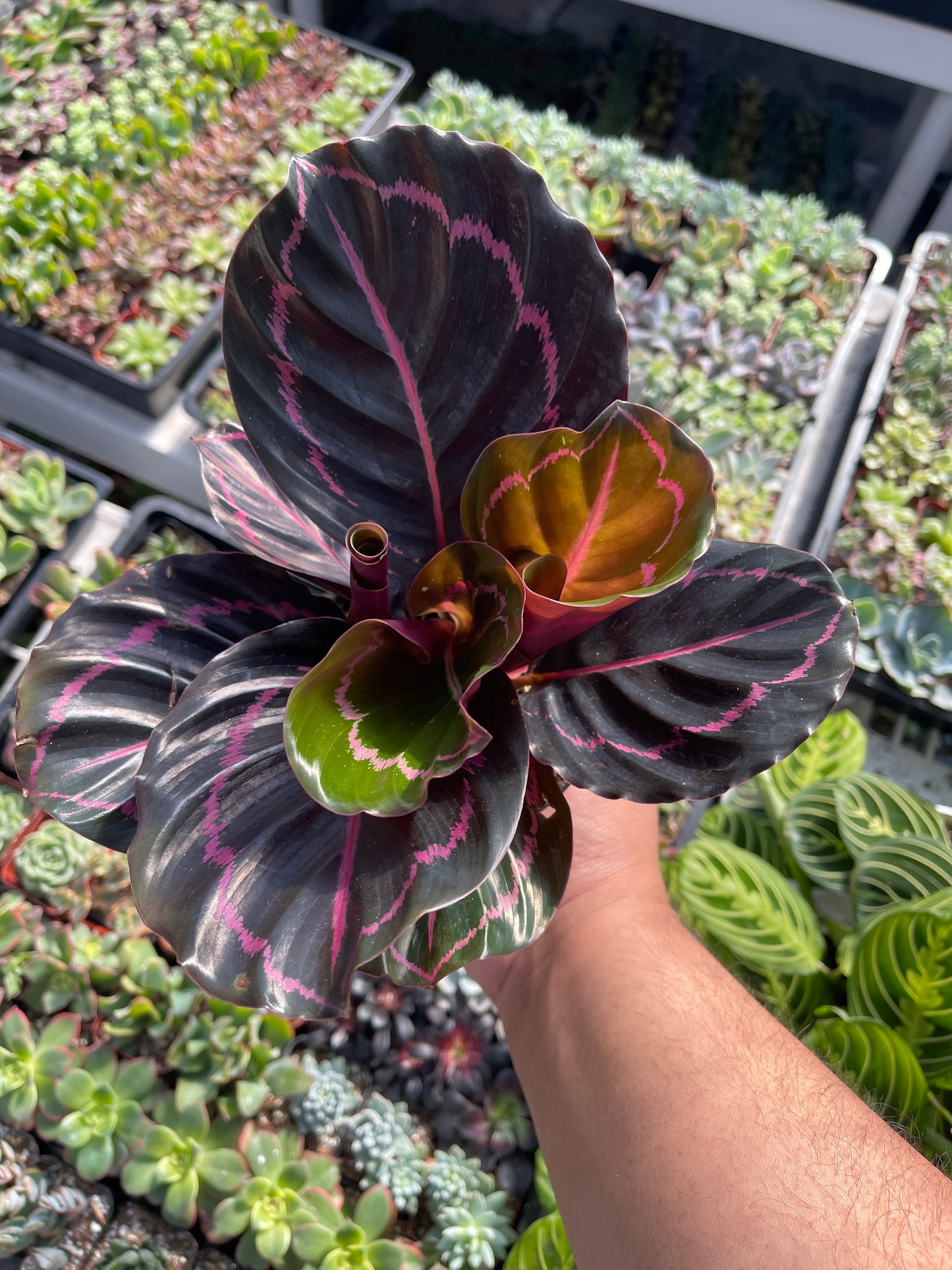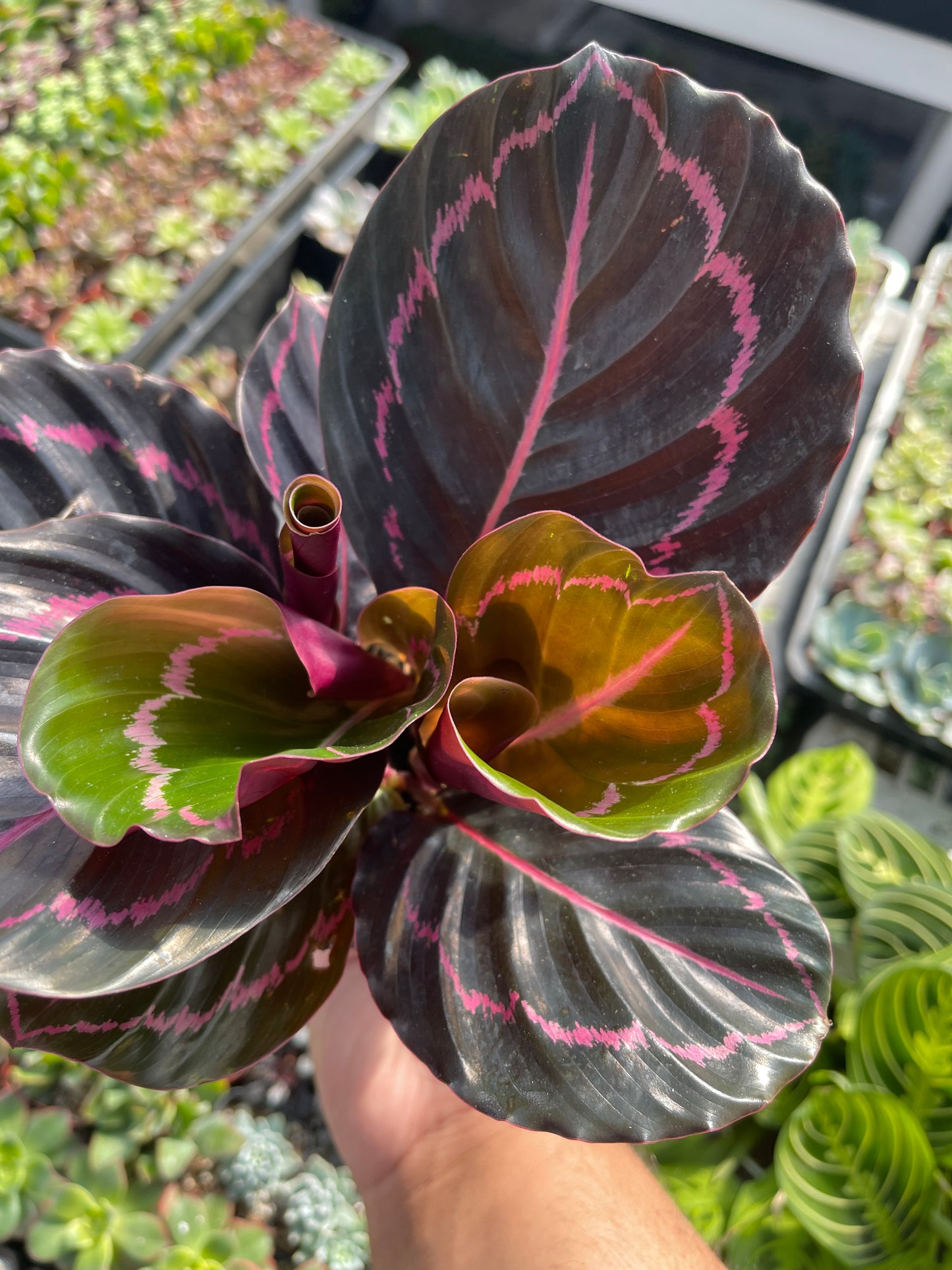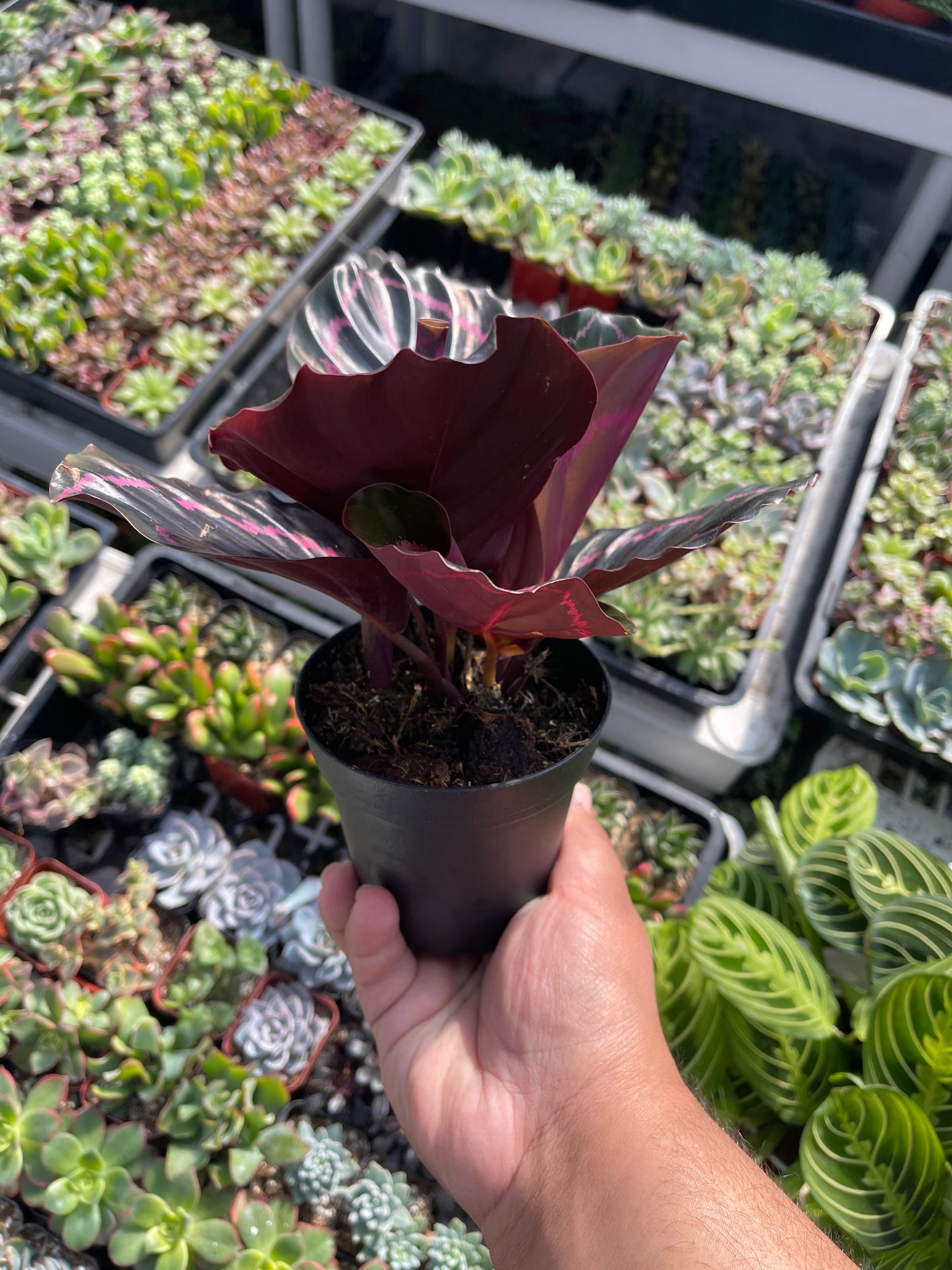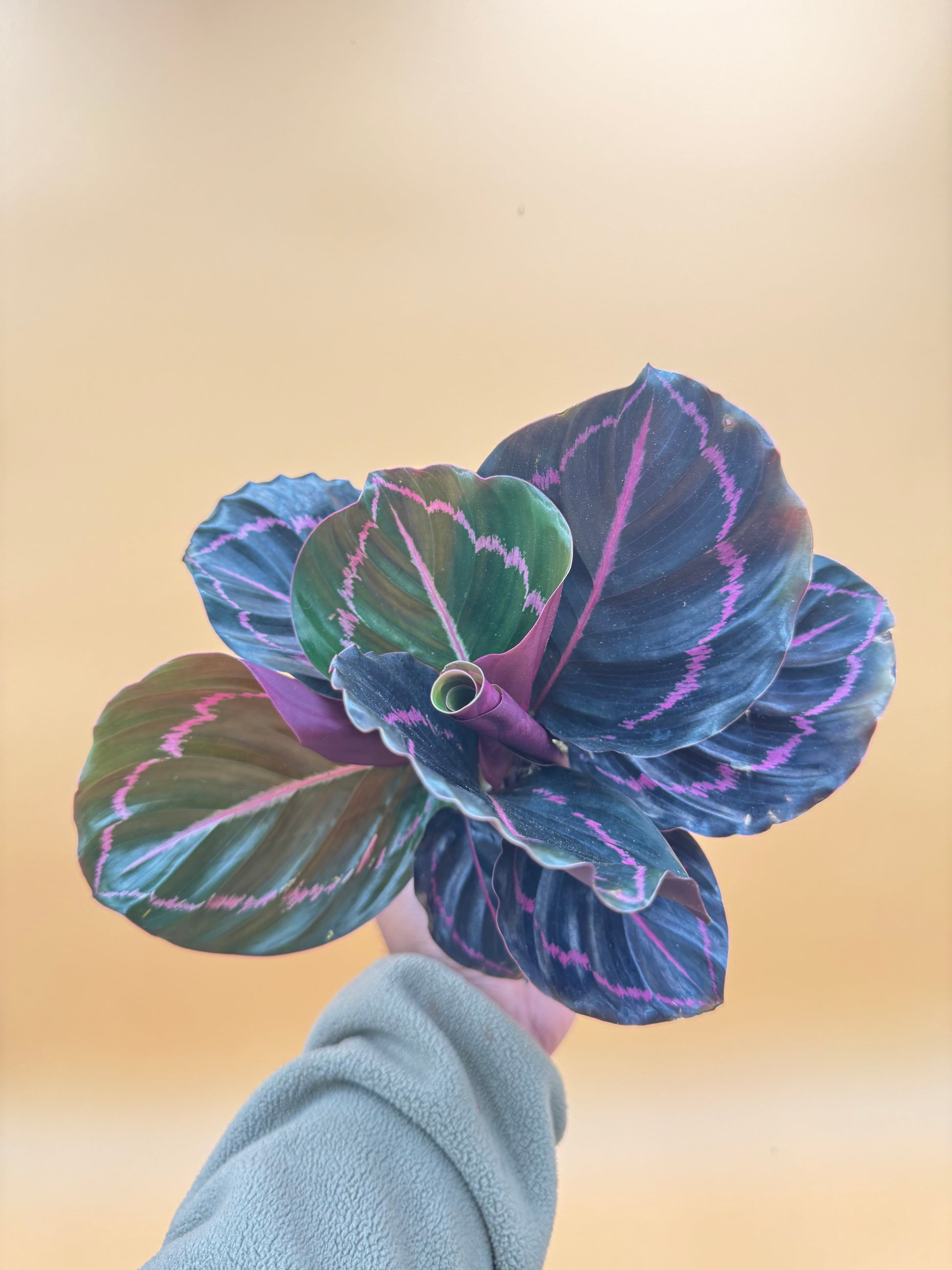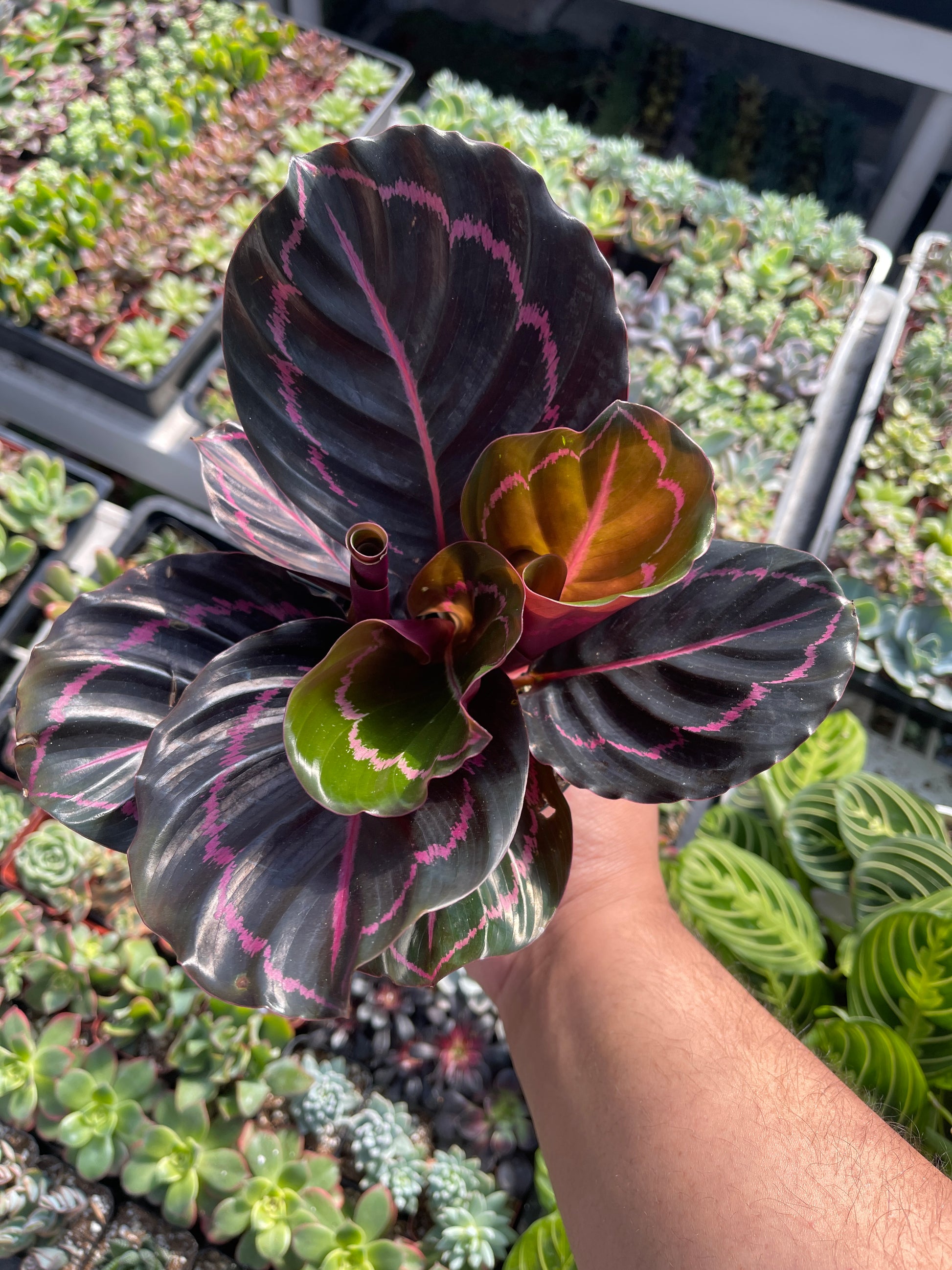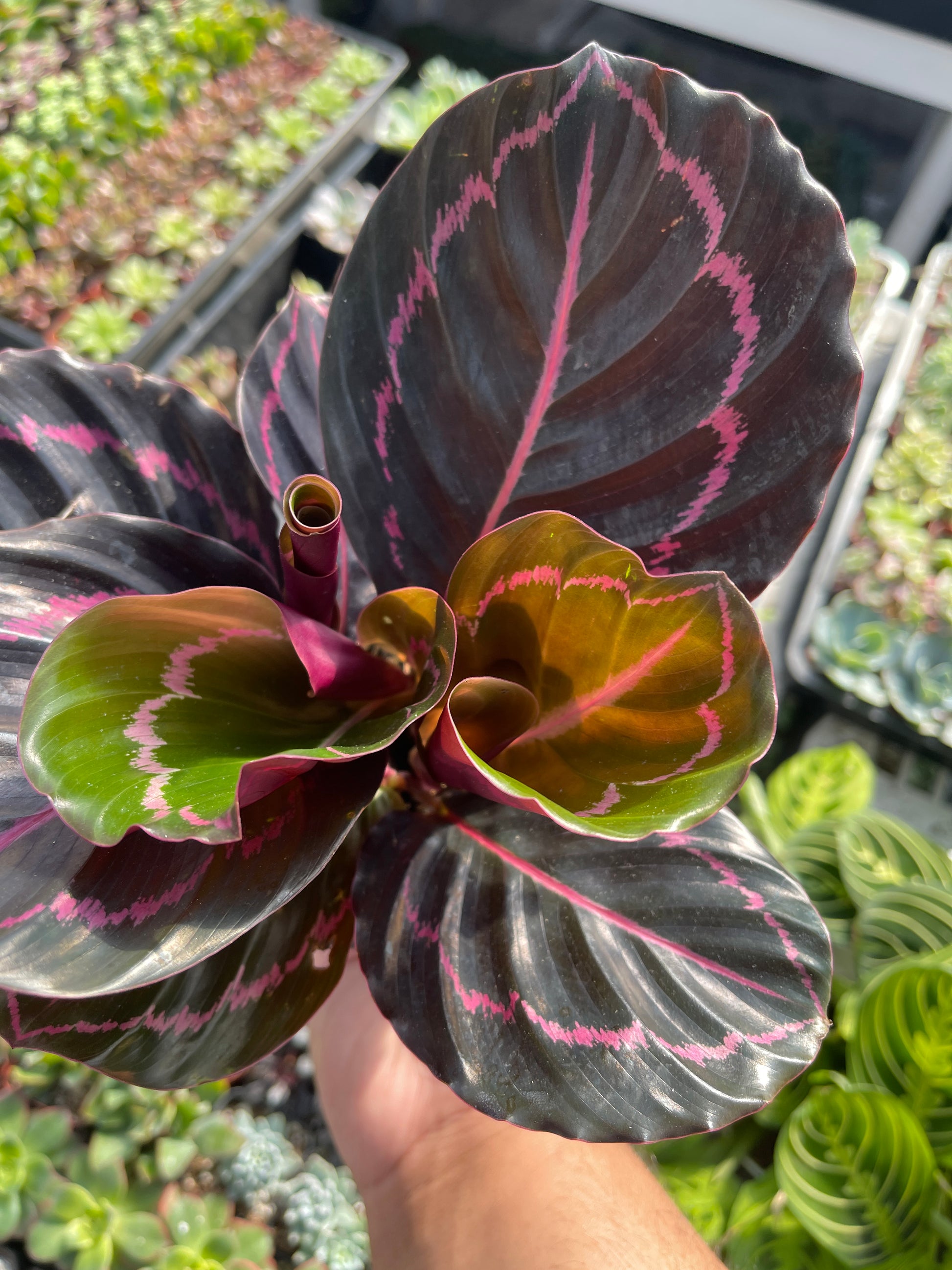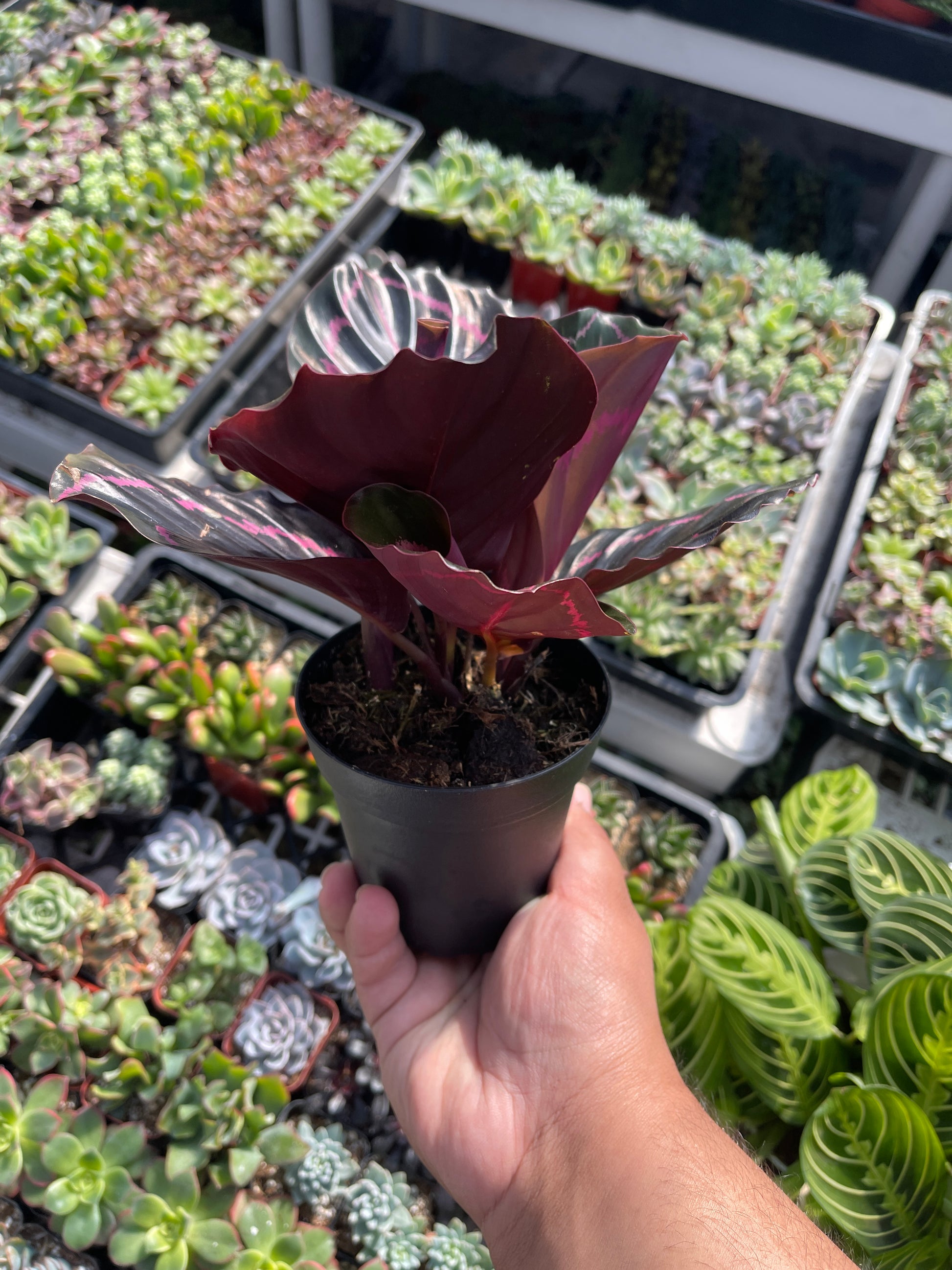Calathea Dottie (Calathea 'Black Rose')
Calathea Dottie (Calathea 'Black Rose')
Couldn't load pickup availability
Our team hand-picks each plant, inspects it thoroughly, and packages it with care. The result? Fresh plants delivered right to your door, guaranteed!
Calathea Dottie
Calathea Dottie, a cultivar of Calathea roseopicta, is a captivating tropical plant known for its striking dark purple leaves adorned with vibrant pink stripes. Its dramatic foliage adds a touch of elegance and sophistication to any indoor space, making it a popular choice among plant enthusiasts seeking a bold statement piece.
Care Guide:
1. Watering: Keep the soil consistently moist but not waterlogged. Water when the top inch of soil feels dry to the touch, and avoid allowing the soil to dry out completely. Use room temperature water to prevent shocking the plant.
2. Temperature: Prefers temperatures between 65°F to 75°F (18°C to 24°C). Protect it from cold drafts or sudden temperature fluctuations, as it can cause stress and damage to the leaves.
3. Fertilization: Feed with a balanced liquid fertilizer diluted to half strength every 4-6 weeks during the growing season (spring and summer) to support healthy growth and vibrant foliage.
4. Pruning: Trim away any yellow or damaged leaves to promote healthy growth and maintain its ornamental appearance. Remove spent flowers if present.
Light Requirements:
Place the Calathea Dottie in bright, indirect light. It thrives in filtered sunlight or dappled shade, but avoid exposing it to direct sunlight, as it can scorch the leaves. Insufficient light can cause the foliage colors to fade and lose their vibrancy.
Soil Type:
Plant in a well-draining potting mix rich in organic matter. A mixture of peat moss, perlite, and compost provides good drainage and moisture retention while supplying essential nutrients for healthy growth. Ensure the pot has drainage holes to prevent waterlogging, which can lead to root rot.
Share
